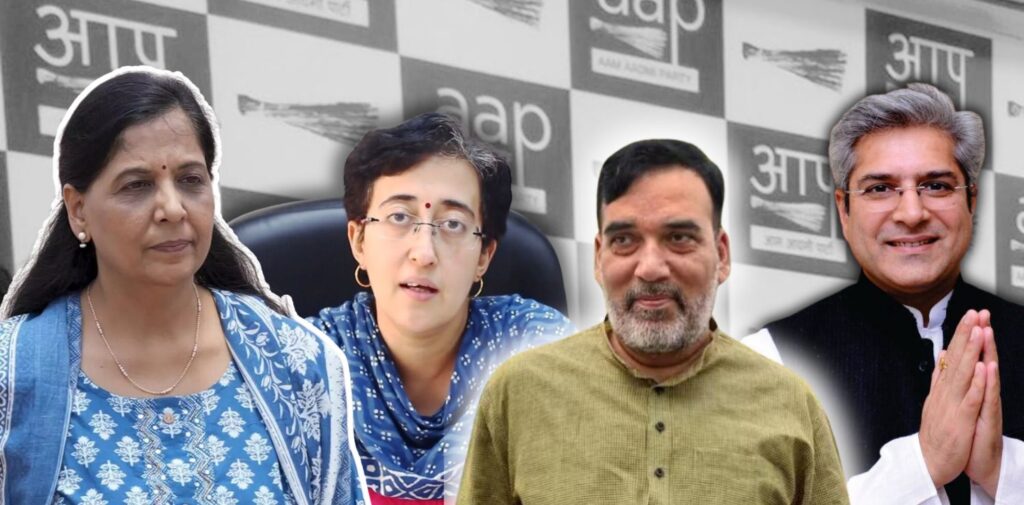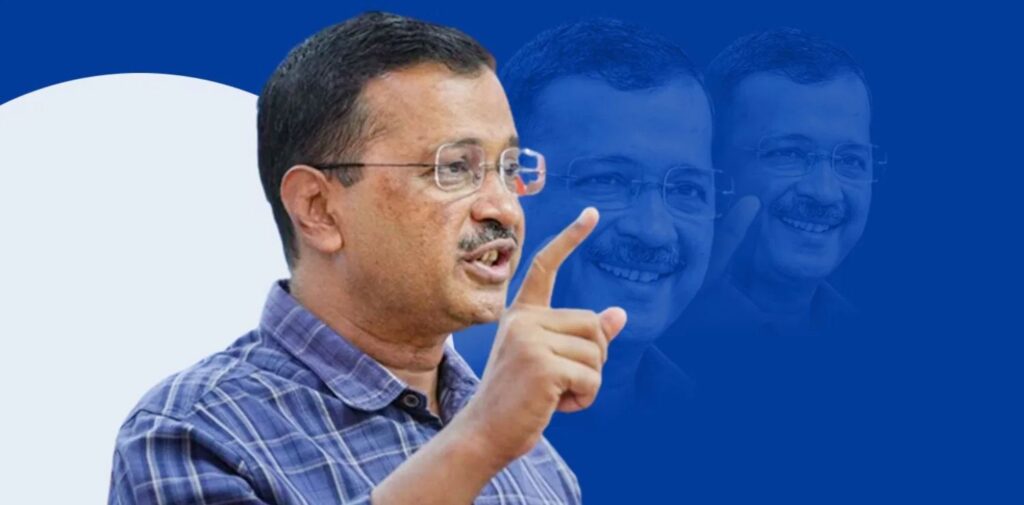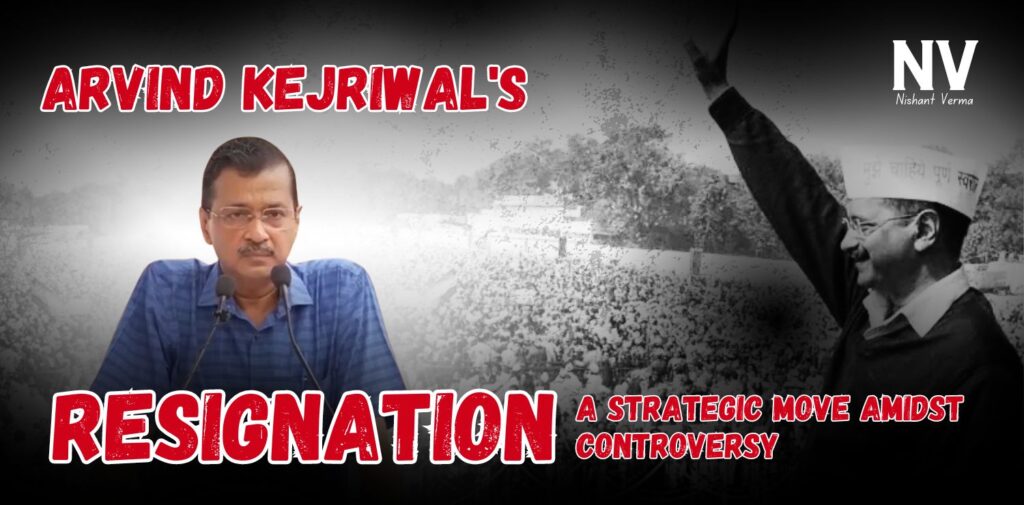Arvind Kejriwal, the three-time Chief Minister of Delhi and a key figure in the Aam Aadmi Party (AAP) has announced his decision to resign from his post following his release on bail in the Delhi liquor policy case. This move, seen as both a tactical and emotional gesture, has sparked discussions across the political spectrum regarding the implications for Delhi and national politics.
Reasons Behind the Kejriwal’s Resignation
Kejriwal’s resignation comes after a turbulent period for both him and AAP. His arrest, along with other key party leaders like Manish Sisodia, under corruption charges related to the now-scrapped liquor policy, put the AAP government under intense scrutiny. Kejriwal was granted bail after several months in jail, but the situation created an administrative standstill. In his resignation announcement, he emphasized that his decision was rooted in a desire to seek a fresh mandate from the people of Delhi, suggesting he would only return as Chief Minister if the electorate reaffirmed his leadership.
Kejriwal’s resignation appears to be a calculated move to galvanize public support and frame his situation as a battle against an oppressive central government, which he claims is more “dictatorial than the British rule” in its treatment of opposition leaders. The Supreme Court had restricted him from signing official files or attending office, making it nearly impossible for him to effectively govern. Faced with these constraints, stepping down might allow him to regain public sympathy while positioning AAP for a possible victory in upcoming elections.

Succession Scenarios and Challenges
The immediate question following Kejriwal’s resignation is who will succeed him as Delhi’s Chief Minister. Several names have emerged as potential candidates. Among the frontrunners are Atishi, Gopal Rai, and Kailash Gahlot, all prominent figures within AAP. Atishi, who has been handling multiple portfolios and was instrumental in running the government during Kejriwal’s absence, is a leading contender. She is known for her work in education and finance and has been a visible face of AAP in recent months.
Gopal Rai, another strong candidate, is a seasoned politician with deep grassroots connections, particularly with working-class communities in Delhi. His extensive experience and activism within AAP make him a potential candidate to bridge internal party dynamics and maintain stability.
Kailash Gahlot, Delhi’s transport minister, has also been speculated as a possible successor. Gahlot’s work in expanding the city’s transport infrastructure and introducing electric buses has earned him recognition, and his administrative capabilities make him a viable option for the Chief Minister’s post.
An intriguing but unlikely candidate is Sunita Kejriwal, Arvind Kejriwal’s wife. Although she played a prominent role in AAP’s campaigns and frequently represented her husband during his imprisonment, her lack of formal political involvement and the potential backlash over dynastic politics might prevent her from assuming the role.

Political Implications and Criticism
While Kejriwal’s resignation could consolidate support for AAP, particularly by leveraging public sympathy, it is also fraught with risks. Some critics argue that the resignation is a tactical retreat rather than a principled stand. The timing of his resignation—after his release on bail rather than during his imprisonment—has raised eyebrows, with some questioning whether this move was designed to avoid further legal challenges while capitalizing on public emotions.
Opposition parties, including the BJP and Congress, may attempt to exploit the situation. AAP’s internal dynamics and the process of appointing a successor could create a period of instability, offering the opposition an opportunity to challenge the party’s governance record. Moreover, the threat of President’s Rule loomed over the situation, and Kejriwal’s resignation may have been, in part, a strategic move to preempt such an outcome. President’s Rule would have delayed elections and potentially diminished AAP’s momentum.

The Road Ahead for AAP
The next few months will be critical for AAP, as they navigate both internal party dynamics and external political pressures. Kejriwal has announced that he will step away from the Chief Minister’s chair until a fresh mandate is secured from the people. This suggests that he is likely to campaign vigorously ahead of the 2025 Delhi Assembly elections, attempting to portray himself and his party as victims of central government oppression.
Kejriwal’s decision to resign, rather than fight the corruption charges while in office, could also be seen as an attempt to reset the party’s image. He and other party leaders, including Manish Sisodia, have long positioned AAP as a party of clean governance, and the liquor policy scandal has tarnished that image. By resigning, Kejriwal is signaling to voters that he is willing to sacrifice his position until his name is cleared and his integrity restored.
Conclusion:
Arvind Kejriwal’s resignation marks a pivotal moment in Delhi’s political landscape. While it could galvanize public support for AAP and help the party secure a fresh mandate, it also poses significant risks. The process of selecting a new Chief Minister and managing internal party dynamics will be crucial for maintaining stability in the coming months. Additionally, the opposition will be keen to exploit any perceived instability within AAP to challenge its dominance in Delhi.
As the situation unfolds, it is clear that Kejriwal’s move is not just about managing the legal challenges stemming from the liquor policy case but also about positioning himself and his party for future electoral success. The success of this strategy will depend on how well AAP navigates the challenges ahead and whether it can maintain its strong connection with Delhi’s voters.




